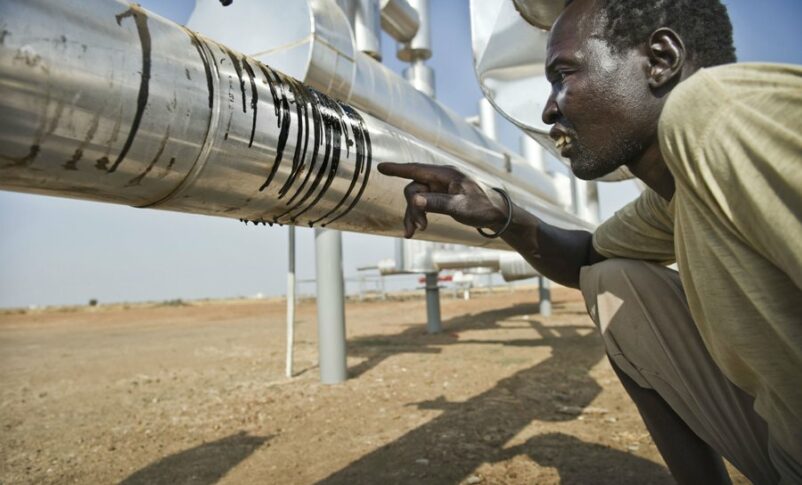The recent rupture of a crucial oil pipeline has delivered a severe blow to South Sudan’s already struggling economy, where even security forces have now gone unpaid for nine months. This financial strain is pushing some soldiers and civil servants to seek alternative income sources or abandon their duties altogether.

South Sudan’s economy, which relies heavily on oil exports through neighboring Sudan, has been hit hard by the ongoing conflict in Sudan. The pipeline, situated in a combat zone, ruptured in February, leading to a significant drop in oil revenues. This loss of income has compounded South Sudan’s long-standing issues of financial mismanagement, making it increasingly difficult for the government to meet its obligations.
As a result, the country is witnessing growing unrest, with protests erupting in the capital, Juba, over unpaid wages. The situation is forcing many people to find unconventional ways to fill the gap left by delayed salaries, adding to the economic strain.

In Juba, Maburuk Kuyu Surur, a school deputy head teacher with 36 years of experience, expressed his frustration over the unprecedented salary delays. Surur noted that this crisis is the worst he has seen, even compared to the years before South Sudan gained independence from Sudan in 2011.
“We are suffering,” said the 60-year-old teacher, reflecting the widespread hardship among the population.

President Salva Kiir’s government, which has been under intense international pressure to stabilize the country and prepare for delayed elections, is struggling to manage the economic crisis. The finance ministry, which has seen six ministers since 2020, continues to grapple with the country’s financial woes, with the latest ministerial change occurring in July.
Reports from The Associated Press reveal that government ministries and offices in Juba are largely deserted, as many employees have walked off the job in frustration over the prolonged lack of pay. Those who remain are left to navigate the deepening crisis with little hope of immediate relief.


